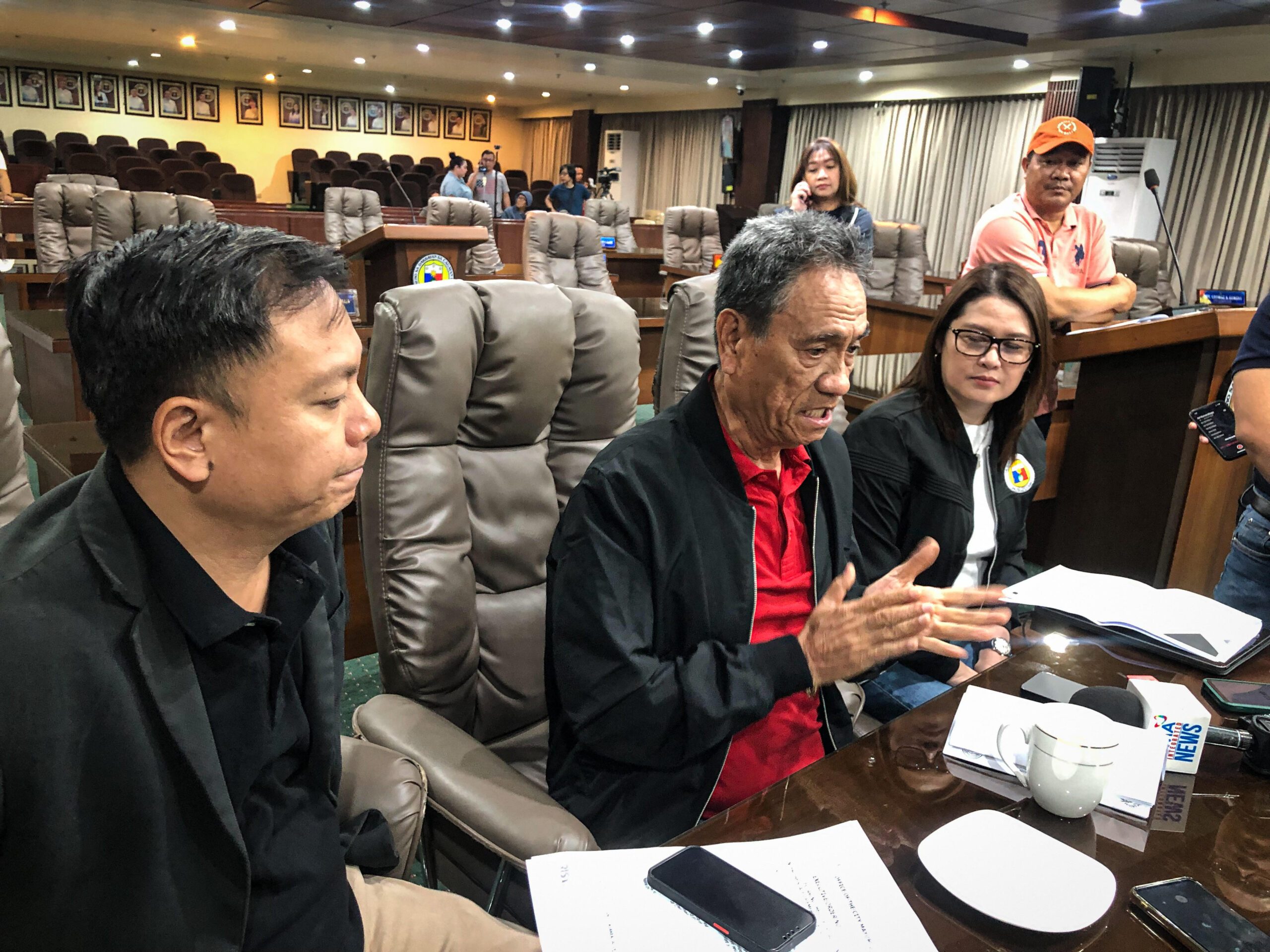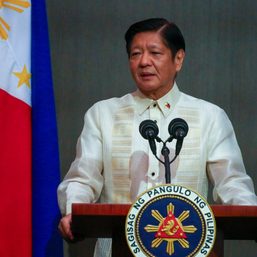SUMMARY
This is AI generated summarization, which may have errors. For context, always refer to the full article.

CAGAYAN DE ORO, Philippines – Cagayan de Oro Mayor Rolando Uy declared a state of emergency on Wednesday, May 1, to prevent a major supplier of treated water from cutting off almost half of the city’s water supply.
Uy issued Executive Order No. 196-2024, affirmed by the city council, allowing the local government to exercise its police powers in an effort to prevent a water crisis in the city.
Police were deployed to guard water facilities, making sure that valves are left untouched.
The state of emergency declaration came after the Cagayan de Oro Bulk Water Incorporated (COBI), a company controlled by business tycoon Manny V. Pangilinan’s Metro Pacific Water, instructed a subcontractor to discontinue the supply of treated water to the Cagayan de Oro Water District (COWD).
The water supply from COBI accounts for more than 40% of the tap water being provided by COWD in Cagayan de Oro.
Engineer Antonio Young, COWD general manager, told Rappler that COBI instructed Rio Verde Water Consortium Incorporated to cease from supplying water to the water district effective May 1, after the two companies failed to reach a settlement agreement over a disputed P479-million debt.
Rio Verde, a company owned by Jose Alvarez, former Palawan governor and current representative of the province’s 2nd District, initially served as COWD’s primary bulk water supplier until a court invalidated their 2007 contract. The Commission on Audit (COA) also called out the water district for its financial dealings with Rio Verde, issuing notices of disallowance.
In 2017, COWD engaged another company, COBI, to become its main supplier of treated bulk water. Nevertheless, Rio Verde continued in treating water and selling it to COBI. This arrangement effectively relegated COBI to the role of a middleman.
The local government tasked Cagayan de Oro’s Incident Management Team (IMT) to conduct an assessment to determine the impact of a potential water supply disconnection.
The IMT was also tasked to supervise the implementation of a contingency plan submitted by a special task force, one of which was tapping other water providers in the city.
In a statement sent to Rappler, Pangilinan’s Metro Pacific Investments Corporation said COBI was reaffirming its commitment to delivering safe and dependable drinking water to the city’s residents, but pointed out that attempts to resolve the outstanding payment of the disputed debt and pricing issues faced obstacles allegedly due to a lack of representation from COWD.
Metro Pacific said most members of the COWD’s board of directors, the water district’s policy-making body, have not been participating in important meetings with representatives from the Local Water Utilities Administration (LWUA) in an effort to settle the dispute.
Despite these efforts, only one COWD director was present, resulting in a failure to reach the necessary quorum to address critical issues, notably the outstanding balance owed by COWD to COBI, the company pointed out.
“This absence of representation from COWD raises concerns about their commitment to resolving the issue and compromising water supply for their consumers,” read part of Metro Pacific’s statement.
Despite numerous negotiation attempts, including a meeting on Tuesday, April 30, an agreement remains elusive between COBI and COWD.
LWUA, according to Metro Pacific, intervened to mediate and prevent service disruptions, particularly crucial during the El Nino period, and even asked for a 30-day extension to facilitate further discussions between Metro Pacific and COWD officials.
Metro Pacific said the April 30 meeting was another missed opportunity to reach a mutually beneficial agreement due to the lack of quorum due to the absence of COWD directors, despite the deadline COBI set for that day.
The corporate dispute took a new and convoluted turn in April as COWD and COBI struggled not only with the issue about acknowledging a debt, which piled up since 2021, but also with disparities in the water rate adjustment formula.
In one of their previous meetings, they presented their conflicting interpretations of a parametric formula outlined in their 2017 contract to determine the precise water rate adjustment. Their calculations did not align.
In 2021, COBI increased its rate from P16.60 to P20.57 per cubic meter, a move which COWD rejected, citing that it came at a time when the country was suffering the impact of the COVID-19 pandemic. COWD invoked a force majeure provision in their contract against COBI’s rate increase.
COWD has also contested the rate adjustment formula used by COBI, contending that any increase should only be a little more than P18 per cubic meter, and not P20.57. The crux of the dispute centered on the inclusion of the 12% value-added tax (VAT). –Rappler.com
Add a comment
How does this make you feel?






There are no comments yet. Add your comment to start the conversation.